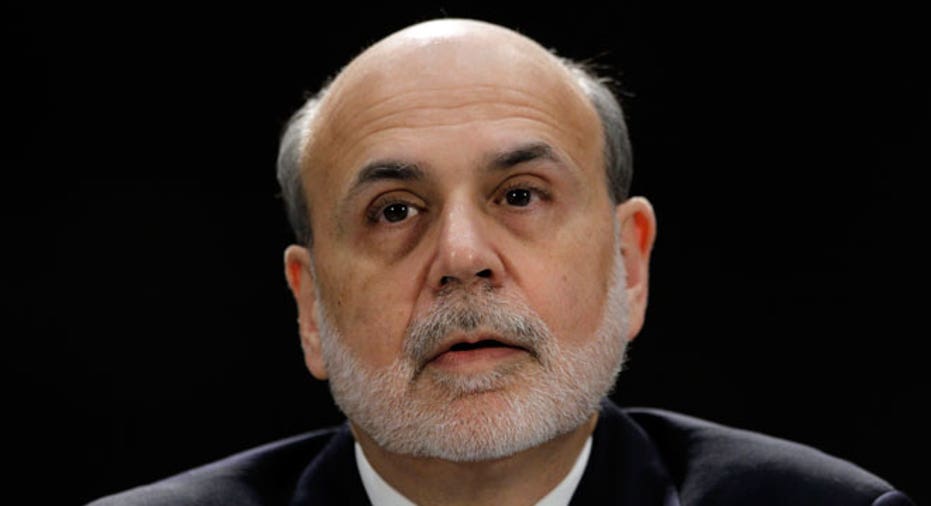Bernanke Defends Controversial Bond-Buying Program

Federal Reserve Chairman Ben Bernanke faced questions from lawmakers Tuesday on the central bank’s response to the still-lethargic U.S. economy, the Fed's controversial bond buying program and the looming sequestration.
In his semi-annual report to the Senate Banking Committee, Bernanke said the economy has continued to expand at moderate “if somewhat uneven pace” and that the prolonged elevated unemployment has substantial costs on the economy and consumers.
In his prepared remarks, Bernanke said the Fed will continue its quantitative easing until it sees "substantial improvement" in the labor market.
Sen Tim Johnson, (D-SD), asked the chairman the best way to improve the anemic labor market and Bernanke cited the Fed's mandate to support economic expansion and employment and that the central bank has provided tools to help bolster job growth and strengthen the housing market.
The central bank is currently buying $85 billion a month in long-term Treasury bonds and mortgage-backed securities to help keep long-term interest rates low in an effort to entice consumers to make bigger purchases like homes and cars.
“We do not see the potential costs of the increased risk-taking in some financial markets as outweighing the benefits of promoting a stronger economic recovery and more-rapid job creation,” Bernanke said in his prepared testimony.
However, some policymakers worry the program is weighing too much on the Fed’s $3 trillion balance sheet, and critics of the bond-buying program say the quantitative easing will lead to inflation down the road.
Bernanke reported inflation is below the Fed's 2% target and inflation expectations "appear well anchored.”
“If further expansion of the Federal Reserve's balance sheet were to undermine public confidence in our ability to exit smoothly from our accommodative policies at the appropriate time, inflation expectations could rise, putting the FOMC's price-stability objective at risk,” he said.
However, Bernanke added that the central bank is confident it has the necessary tools “to tighten monetary policy when the time comes to do so.”
Sen Patrick Toomey, (R-Pa.), asked Bernanke how the markets may react when the bank decides to wind down its monetary policy. Bernanke said it would be hard to predict.
"We will sell slowly with lots of notice and forward guidance on rates....there's no risk-free approach. We're trying to balance these things."
The Fed chief also told lawmakers the $46 billion budget cuts set to go into effect March 1 will create “a significant headwind for the economic recovery” by hurting the already-weak labor market and income levels. He reiterated the challenges facing lawmakers as they work to address longer-term fiscal imbalances.
“To promote economic growth in the longer term, and to preserve economic and financial stability, fiscal policymakers will have to put the federal budget on a sustainable long-run path that first stabilizes the ratio of federal debt to GDP and, given the current elevated level of debt, eventually places that ratio on a downward trajectory.”
Sen. Coburn, (R-Okla.), asked the Fed chief on whether there is a diminishing return on the banks' QE efforts and Bernanke responded that the first round of the policy had "lots of benefits" and that it helped calm jittery markets. He added that credit markets are more open and that interest rates can pass through more easily today.
The chairman took the hot seat the day after Wall Street's worst selloff since November as traders worry about global economic instability after Italy's election ended in a stalemate. The Dow Jones Industrial Average lost 216.40 points, or 1.6%, while the Standard & Poor's index fell 27.75 points, or 1.8%.
"The risks that we've been facing for the last couple of years have been primarily financial given uncertainties about the stability of certain countries' sovereign debt," Bernanke said. "The European central bank has taken a number of important steps, including most recently the outright monetary transactions which have help to bring down the sovereign debt yields.''
The chairman will deliver the same report Wednesday to the House Financial Services Committee.



















